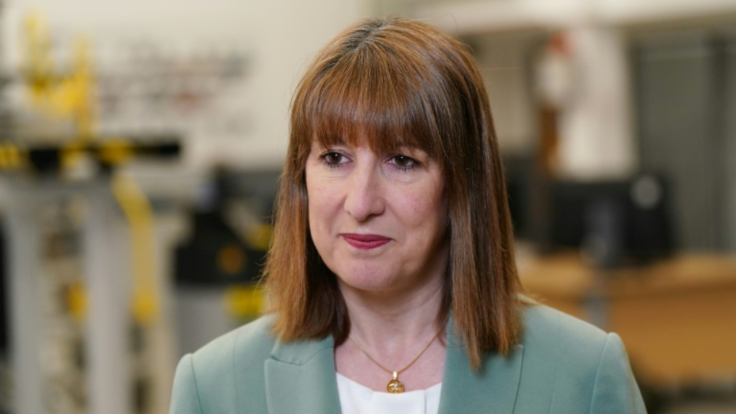Millions of UK Minimum Wage Earners to Get Pay Rise, but Business Leaders Warn Against Possible Backlash
Is the move sustainable for the UK economy?

Chancellor Rachel Reeves announced a generous pay rise for millions of low-income workers in the UK as part of the government's goal of improving the country's living standards, but business experts are worried about its possible outcome.
The national living wage will increase from £12.21 to £12.71 ($16.13 to $16.79) per hour from April for workers aged 21 and above. The government said that the rise will boost the annual earnings of approximately 2.4 million workers in the country by £900 (approximately $1,100).
Meanwhile, those in the 18 to 20 age bracket will have a higher pay raise. Their minimum wage of £10 ($13.21) an hour will rise by 8.5% to £10.85 ($14.33), giving them a before-tax annual increase of £1,500 ($1,981) if they are working full-time.
Those belonging to the 16 to 17-year-old age group and those who are working under apprenticeship will have a 6% increase, which means their £7.55 ($9.97) rate per hour will increase to £8 ($10.57).
Higher Pay for Younger Workers
The higher pay rise for younger workers will narrow the gap between them and the older workers, as part of the government's plans to 'raise the floor' on the salaries of workers in the country.
The Guardian reported that the government approved the recommendations of the Low Pay Commission, so those earning low incomes will be 'properly rewarded' according to the chancellor.
'I know that the cost of living is still the number one issue for working people and that the economy isn't working well enough for those on the lowest incomes,' Reeves stated. 'Too many people are still struggling to make ends meet and that has to change. That's why I'm announcing that we will raise the national living wage and also the national minimum wage, so that those on low incomes are properly rewarded for their hard work.'
She also noted that the changes will benefit a lot of young people all over the UK, especially those who are getting their first jobs.
Positive Responses
The Youth Employment UK appreciated the news of a pay rise for younger workers, claiming that it is a 'vital and necessary step in the government's ongoing journey to make work pay for everyone.'
Yet they urged Reeves to 'provide the support and stability employers need to invest in youth jobs and training,' according to ITV News.
The Trades Union Congress also welcomed the upcoming pay changes, saying that the 'above-inflation pay rise will make a real difference to the lowest-paid.'
Business Experts Weigh In On the Pay Rise
While workers benefit from the pay increase, business leaders are concerned about the possible repercussions of these changes in the country's economy and employment rate.
As reported by The Independent UK, Chief Economist at the Institute of Directors, Anna Leach, said that the move could boost unemployment among young people.
'These changes benefit only those who remain employed, but the rising cost and risk of employment are already reducing job opportunities,' Leach stated. 'The sharper increase in the youth rate is especially concerning, as it is likely to accelerate the loss of jobs among young people – at a time when nearly a million are already not in education, employment, or training.'
At the moment, the number of NEETS (young people not in employment, education or training) has reached almost a million.
Labour Costs One of Three Barriers to Business Growth
Meanwhile, CBI director of work and skills Matthew Percival said that the 'hard pressed firms' started 'diverting investment away from innovation, training and job creation – the very things we need to boost the productivity growth that underpins sustainable wage increases.'
He also mentioned that it is necessary to ensure that the new measures will prevent 'undermining both economic growth and vital labour market initiatives like the Youth Guarantee.'
Also, Federation of Small Businesses policy chair Tina McKenzie warned that labour costs are one of the three major barriers to business growth.
'With national insurance contributions rising, employment costs climbing and hiring becoming riskier, small employers are thinking twice about taking people on – and its young people who'll miss out. Give businesses the capacity to hire and they will - it's that simple,' she shared.
© Copyright IBTimes 2025. All rights reserved.





















